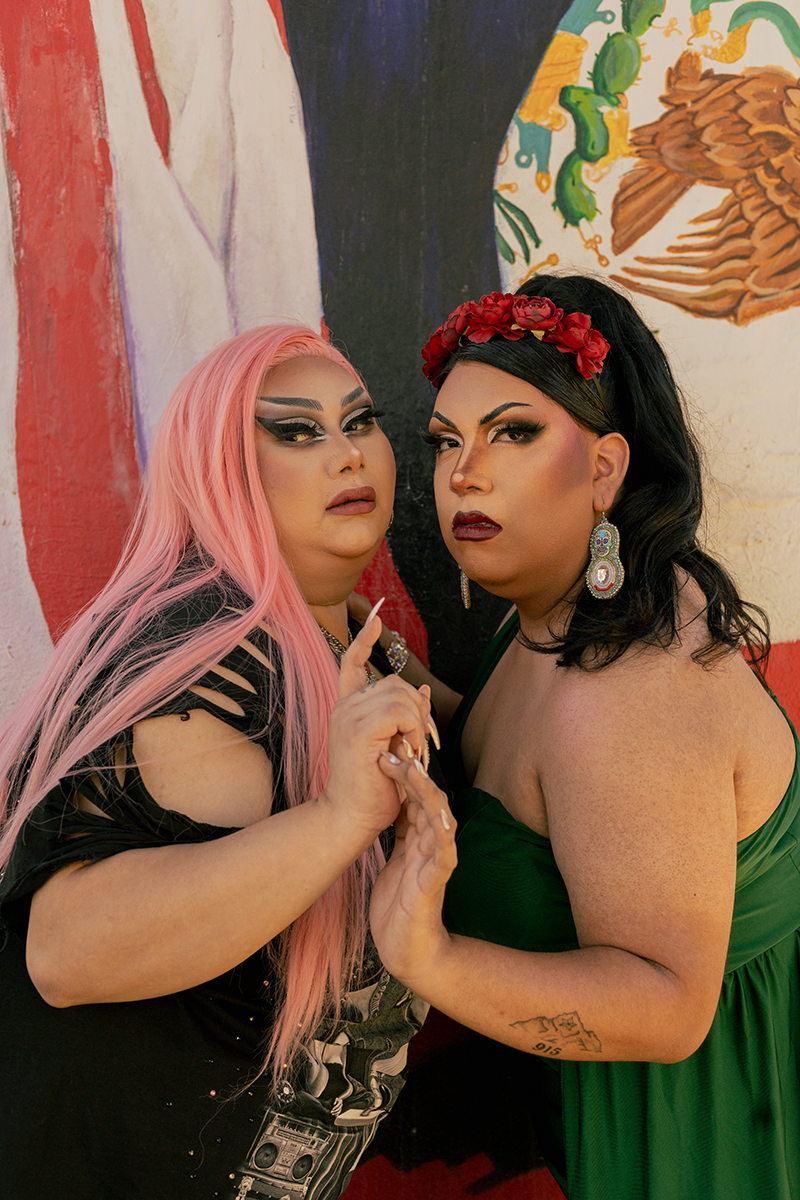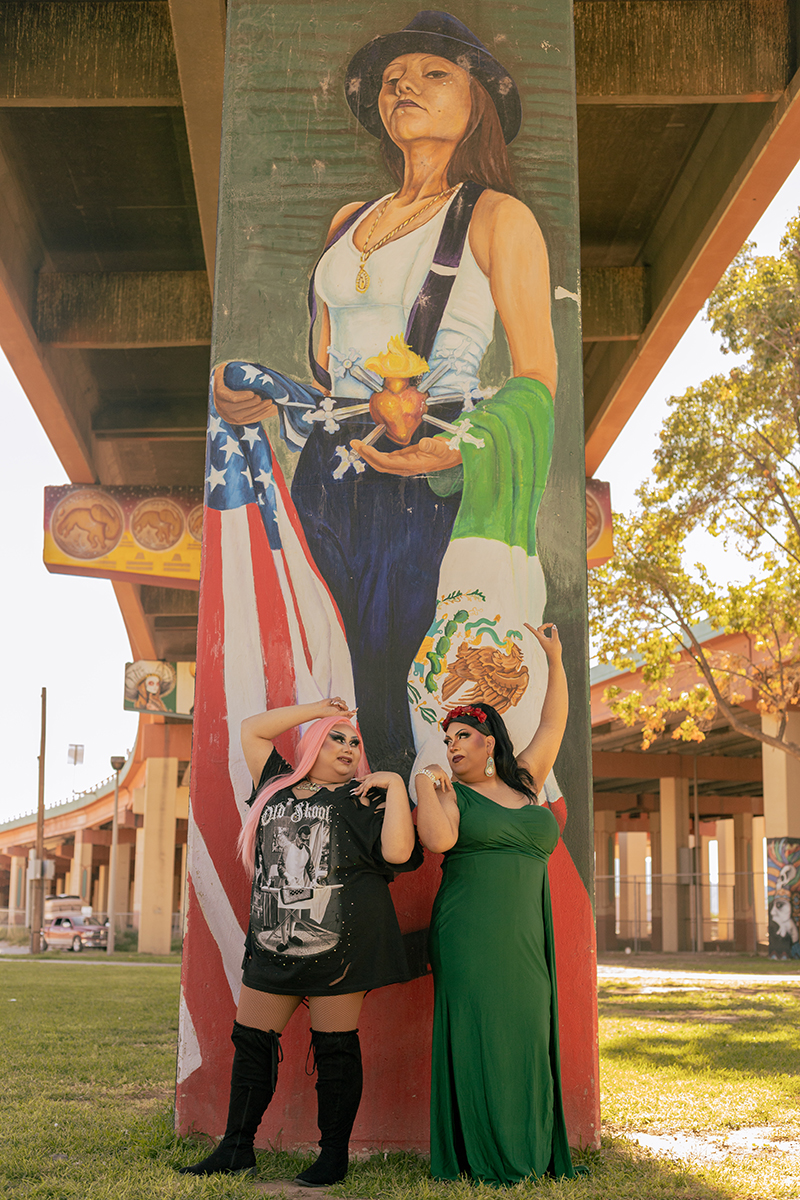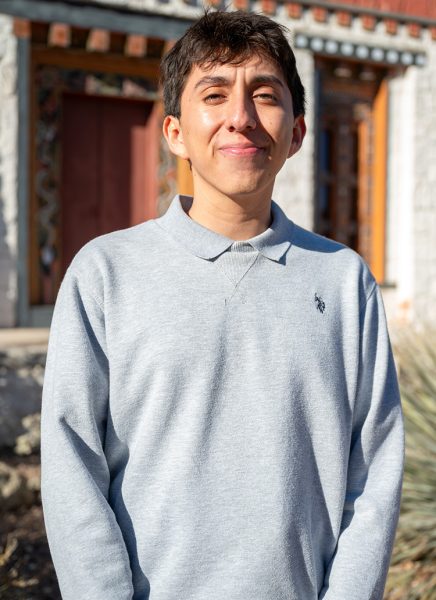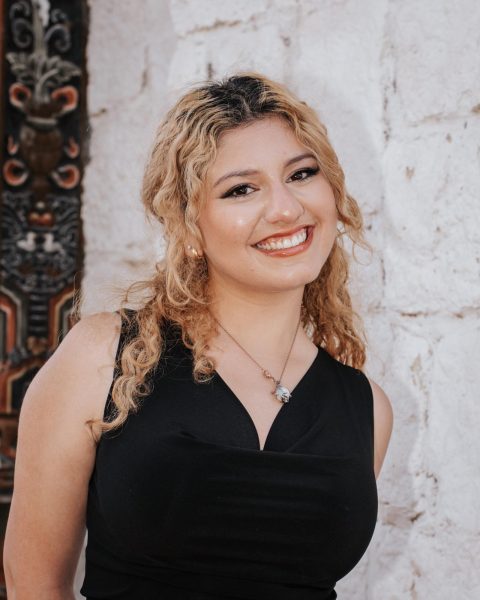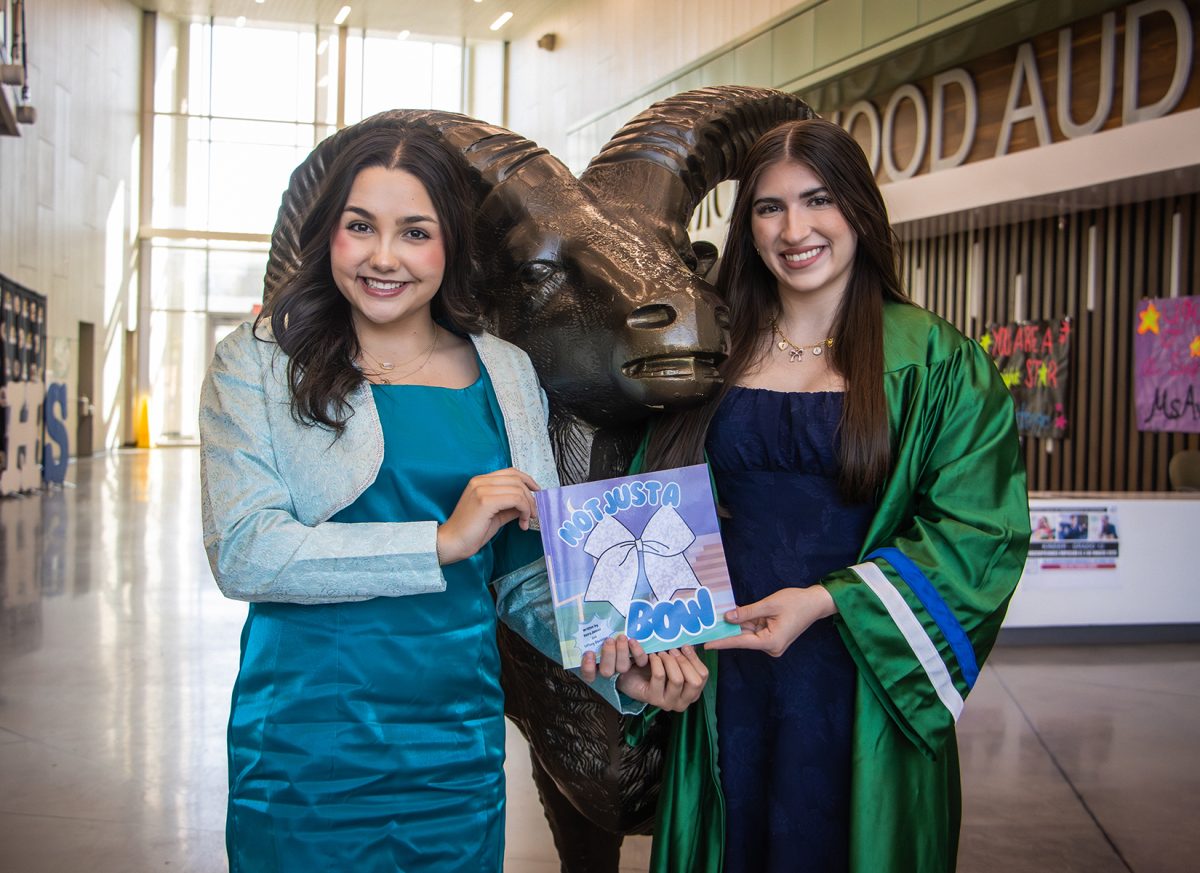Continuous bills restricting drag performances, endless protests and arrests of drag queens; is all what the drag community has faced over the years, an uphill struggle fighting for their voices and freedom. Fellow Latinx drag queens like Gigi Chairez (Gagaboy) are here to spread their stories and culture to the community, and there are more than what society has painted them to be.
Growing up in the Lower Valley and having a mixed relationship with her brother, the name ‘Gagaboy’ came to fruition with the help of her brother when creating a Myspace profile in middle school, a sentimental moment she will remember as Chairez tries to incorporate her story and culture into her drag.
“It did take me a long time to be proud of my Mexican culture, I used to be embarrassed of it because of what kids would make fun of me at school for,” Chairez said. “I would get called names and I would think low of it, but it wasn’t until I started drag that I started being happy with my culture.”
Mesmerized by the dramatics of costumes, drag queen Rosita Thorne (David Ortega) always knew she wanted to connect her drag name to her heritage, but despite her love and confidence for drag, Thorne had difficulty expressing her authentic identity growing up due to the traditional Hispanic culture.
“We are right on the border, so we are in a mixture of two dominant cultures, but you still have this sense of tradition and sense of ‘I’m supposed to be doing this because that’s way it always been done,’” Thorne said. “Growing up there were times that I thought it would be a little difficult to fully express who I was because of tradition and in Hispanic culture we have (machismo) the idea of men must be manly and for me it was learning how to break out of that mold.”
Flipping through fabrics and makeup brushes, leaning heavily with the vintage and ’60s aesthetic, Thorne loves incorporating some of her heritage into her designs and costumes. One of her favorites looks she loves to wear is ‘Queen of Tejano Music’ Selena Quintanilla, who is one of her biggest inspirations and makes her feel empowered with her roots.
“Through culture, language, anything there is always this connection of self and others that is what culture is the exchanging of knowledge and tradition,” Thorne said. “To keep that within what I do and who I am is important because I feel like if we don’t it tends to get somewhat lost.”
Performing on stage as the crowd cheers and chants her name, Thorne feels there is a sisterhood among her drag sisters, empowering and lifting each other but struggling when the LGBTQ+ community isn’t accepting and open-minded like she would hope to be.
“We try to put on this armor, I would say drag is almost an armor to deal with the world and its problems and sometimes it’s a little bit harder when it’s your own community that isn’t as accepting or open-minded like you would hope for,” Thorne said. “You would think that these are the people that are going to be your biggest supporters and sometimes they end up being one of your challenges.”
However, added to those challenges, drag communities across Texas are facing the ongoing threat to ban and restrict public drag shows. Those fears could wash away as, according to the Texas Tribune, a judge stated that if Texas bans certain drag shows, it would be unconstitutional Thorne weighed in on the issue and thinks it all goes back to the performer and their art.
“While I do agree that there are some drag venues or performances that may not be suitable for children, a large majority of them are and it be somewhat the same censorship as telling a child not to visit an art museum,” Thorne said. “It comes back to the performer of ‘What am I trying to do with my art’ and I think that’s something that gets lost in translation is a lot of people don’t realize that we are here to bring knowledge, joy, love and community to people that otherwise don’t have it.”
Alluring and enticing the audience with her performances is drag queen Malibu Doll, as drag has allowed them to find and express their feminine side without being ashamed of it.
“In Mexican culture it’s very hard to express your femininity and my mom was always super accepting about me being gay but she will tell me ‘Its ok just don’t be flamboyant’ so drag was my steppingstone with my family to be able to introduce that to them and find myself within that,” Doll said.
Coming from an accepting and loving family is something rare as many drag queens and people in the LGBTQ+ community can struggle with finding acceptance and support, it is why although many of these queens don’t have a blood connection, they accept being one another’s family. Not having the support and love needed can be difficult and it is something Doll has seen up close and personal, which is why they try to be welcoming to everyone.
“In Mexican culture its complicated sometimes to find that accepting family in the LGBTQ community or even in the drag scene its complicated,” Doll said. “I have a lot of friends that struggle with having that blood family connection and I’m thankful to have mine and I want to go ahead and share that with other queens and people, which is why I try to be welcoming to new girls.”
Though endless bills and uphill battles continue to try and restrict drag shows, creating a stamina for the community, Doll and other drag queens will continue to fight the fight and show everyone that they are more than what the media portrays them to be.
“Some of my drag sisters do this for a living, from the drag queens I met all of us do this with well intention, we do this for fun and joy only positive remarks,” Doll said. “It’s not like we want to go out there and hurt society or create this stamina of us, if anything we want to bring a joy, happiness and with all these laws put into place and the thought of drag being banned is scary but it’s a fight that we will overcome.”
Erik Acosta is the web and copy editor and may be reached at emacosta[email protected]

